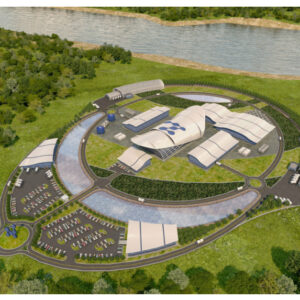Gov. Jared Polis signed a bill Monday designed to crack open the door to a new nuclear energy era in Colorado, disregarding a coalition of environmental groups asking for a veto. The legislation, HB25-1040, redefines nuclear as a “clean energy resource” since it doesn’t release large amounts of climate-warming emissions. The category was previously reserved for...
Gilkes Energy gains planning consent for Earba storage project in Scotland
Gilkes Energy has received Section 36 planning consent from the Scottish government’s Energy Consents Unit for its Earba storage project, a pumped storage hydro (PSH) initiative at Loch Earba. With an installed capacity of 1.8GW and a storage capacity of 40 gigawatt hours (GWh), it will become the largest PSH project in the UK, capable...
Dow and X-energy submit for construction permit for nuclear project in Texas
Chemical firm Dow and X-energy Reactor Company have submitted a construction permit application to the Nuclear Regulatory Commission (NRC) for a proposed nuclear project in Seadrift, Texas, the companies said on Monday. WHY IS IT IMPORTANT The U.S. nuclear industry, which has faced expansion challenges in recent decades, is witnessing a surge in demand on...
Nuclear growth helps South Korea cut back on coal and LNG imports
Record nuclear power production is helping South Korea to cut imports of thermal coal and LNG to multi-year lows so far in 2025, offering a potential blueprint for other power-hungry nations looking to curb reliance on fossil fuel imports. Nuclear reactors have generated more electricity than South Korea’s coal and natural gas-fired plants since September...
These nuclear companies are leading the race to build advanced small reactors in the U.S.
The nuclear industry is racing to launch advanced small reactors by the early 2030s, aiming to meet the deep-pocketed technology sector’s growing need for electricity to fuel artificial intelligence. The world has relied largely on the same pressurized-water reactor technology for the past 70 years, but those plants have proven incredibly expensive to build in...
Hydrogen: The Next Texas Energy Frontier
Texas is proud to be the energy capital of the world, producing nearly half of American crude oil and more wind and solar than any other state. Today, Texas is poised to dominate yet another new renewable energy source: hydrogen. This new energy frontier has the potential for billions of dollars in economic and environmental benefits for...
AI and Remote Sensing Combine for Early, Accurate Crop Mapping
Advances in artificial intelligence (AI) and remote sensing technologies are reshaping how global agriculture addresses food security challenges. A recent study introduces a Bayesian Probabilistic Updating Model (BPUM) that leverages historical data and real-time satellite imagery to enable early crop identification with high accuracy. This innovation signals a paradigm shift in how agricultural stakeholders can manage...
New nuclear fuel recycling, rare earth metals recovery method to boost US energy
Nuclear energy holds immense potential to meet growing energy demands, and researchers at the U.S. Department of Energy’s (DOE) Argonne National Laboratory are working on a breakthrough technology that could revolutionize the recycling of nuclear fuel and other valuable materials. Their research focuses on a smaller, more localized approach to recovering uranium, transuranic elements, and...
As Goes Texas, So Can the World
The world needs more energy. Whether delivering electricity to a community in Africa for the first time or powering the data center revolution, energy access is essential for human flourishing. While many global politicians and business leaders talk about an energy transition, economic reality demonstrates that the world is headed for an energy expansion. We need energy of all kinds—above and below the ground.
DOE delays three Biden energy efficiency standards for appliances
“Under President Trump’s leadership, the Department of Energy is taking critical steps every day to help American families prosper,” DOE Secretary Chris Wright said in a statement. “By removing burdensome regulations put in place by the Biden administration, we are returning freedom of choice to the American people, ensuring consumers can choose the home appliances that work best for their lives...









